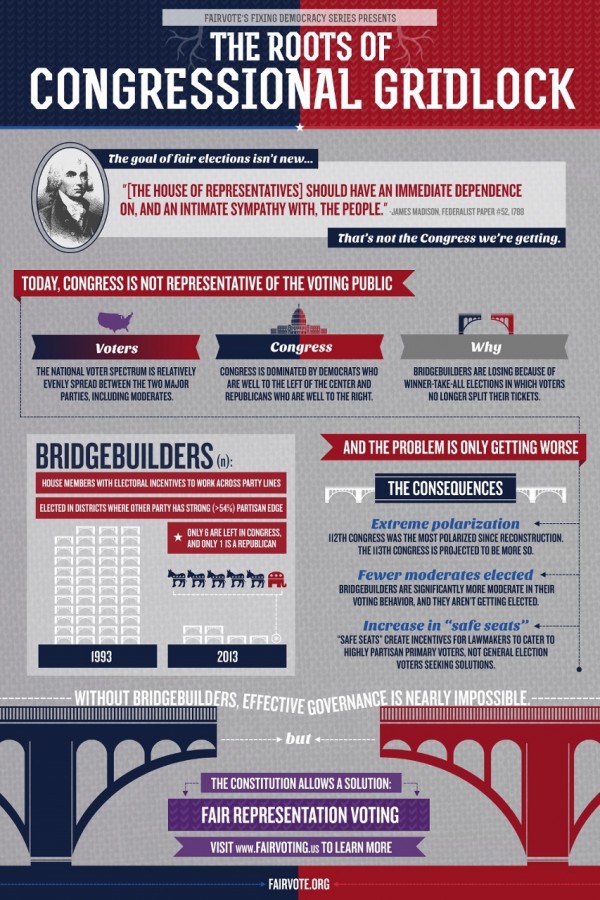What Causes Congressional Gridlock?

Congressional gridlock is the norm in today's polarizing political climate. Although voters are content with keeping the same people in office despite record lows of approval, the cause for this phenomenon can be rooted to the lack of Congressional moderates, which also means the lack of "bridgebuilders."
Bridgebuilders are the men and women in Congress with incentives that transcend partisan politics, voting on an issue regardless of affiliation. However, with today's almost evenly-split electorate and congressional terms primarily focused on reelection, there is little to no cause to vote across party lines.
Couple this with the nation's current infatuation with primary races appealing to largely partisan voters, and you've got yourself a perfect, real-life example of an unstoppable force colliding with an immovable object.
The current number of moderates in Congress is six.
The 113th Congress is projected to have even less moderate members than the current cycle, resulting in a higher polarization rate. What will it take to rectify this situation?
 Credit: Fairvote.org
Credit: Fairvote.org


